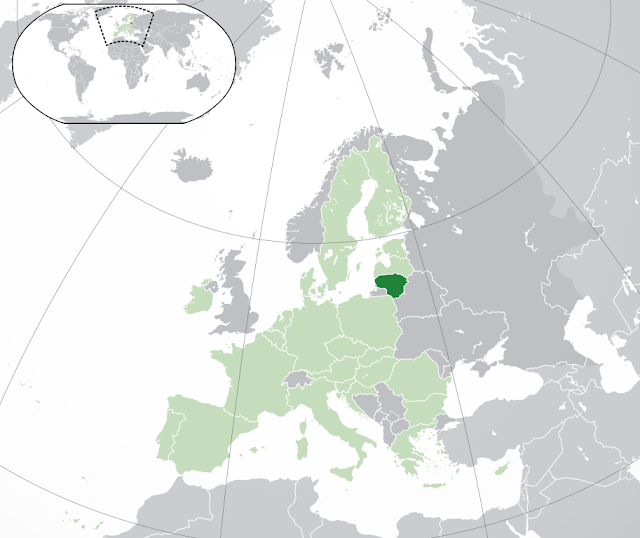Constitution of Lithuania
Lithuania is a European country located on the shores of the Baltic Sea, sharing a border with Latvia, Belarus, Poland, and Russia. The population of this country is approx 28,67,000 with 65,300 square kilometers area. The official language is Lithuanian. Ethnically 83% are Lithuanians, the rest are Poles, Russians, Belarusians, Ukrainians etc. Religiously 80% are Christians, almost all of them are Catholics. 6% do not believe in any religion, and 13% of citizens did not reveal their religious identity.
Marriage is valid based on the consent of a woman and a man. The authorities will register births, marriages and deaths. Both husband and wife have equal status in the family. Any religious provision that is in conflict with the Constitution and the law is void. Lithuania's economy is based on individual property rights, and freedom of enterprise; But the state will regulate economic activity for the general welfare of the citizens. Monopolies are prohibited, while the State will protect the interests of consumers.
These are positive aspects. Lithuania's constitution has no debatable negative aspects.

Admirable Articles of Lithuania's Constitution
Article 21
The person of the human being shall be inviolable.
The dignity of the human being shall be protected by law.
It shall be prohibited to torture, injure a human being, degrade his dignity, subject him to cruel treatment as well as establish such punishments.
No human being may be subjected to scientific or medical experimentation without his knowledge and free consent.
Article 29
All persons shall be equal before the law, the court, and other State institutions and officials.
The rights of the human being may not be restricted, nor may he be granted any privileges on the ground of gender, race, nationality, language, origin, social status, belief, convictions, or views.
Article 30
The person whose constitutional rights or freedoms are violated shall have the right to apply to court.
Compensation for material and moral damage inflicted upon a person shall be established by law.
Article 38
The family shall be the basis of society and the State.
Family, motherhood, fatherhood and childhood shall be under the protection and care of the State.
Marriage shall be concluded upon the free mutual consent of man and woman.
The State shall register marriages, births, and deaths. The State shall also recognise church registration of marriages.
In the family, the rights of spouses shall be equal.
The right and duty of parents is to bring up their children to be honest people and faithful citizens and to support them until they come of age.
The duty of children is to respect their parents, to take care of them in their old age, and to preserve their heritage.
Article 43 (Part of it)
The teaching proclaimed by churches and religious organization[s], other religious activities and houses of prayer may not be used for purposes which are in conflict with the Constitution and laws.
There shall not be a State religion in Lithuania.
Article 46
Lithuania’s economy shall be based on the right of private ownership, freedom of individual economic activity and initiative.
The State shall support economic efforts and initiative that are useful to society.
The State shall regulate economic activity so that it serves the general welfare of the Nation.
The law shall prohibit monopolisation of production and the market and shall protect freedom of fair competition.
The State shall defend the interests of the consumer.
Article 47 (Part of it)
The underground, internal waters, forests, parks, roads, historical, archaeological and cultural objects of State importance shall belong by the right of exclusive ownership to the Republic of Lithuania.
The Republic of Lithuania shall have exclusive rights to the airspace over its territory, its continental shelf and the economic zone in the Baltic Sea.
Article 117
In all courts, the consideration of cases shall be public. A closed court hearing may be held in order to protect the secrecy of private or family life of the human being, or where public consideration of the case might disclose a State, professional or commercial secret.
In the Republic of Lithuania, court proceedings shall be conducted in the State language.
Persons who have no command of Lithuanian shall be guaranteed the right to participate in investigation and court acts through a translator.

